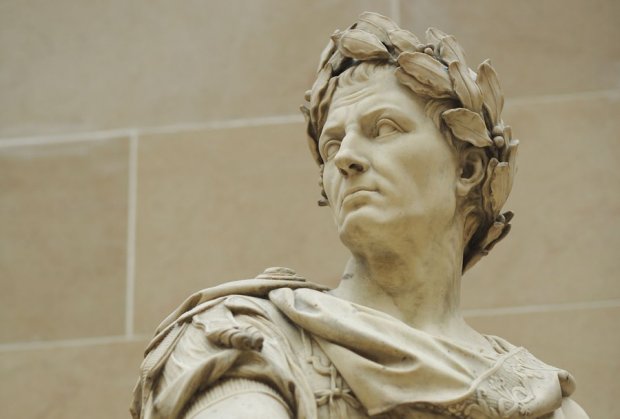
According to legend, when entering Italy with the army across the Rubicon River, Caesar said: Alea iacta est (Croatian: The dice are thrown).
The Roman military leader and statesman who sponsored the fall of the Roman Republic of Gaius Julius Caesar was born on July 13, 100 BC in Rome. He came from a prominent patrician family of Julians and was a nephew of Consul Gaius Maria who waged bloody civil wars with Cornelia Sulla. After Mary’s death and the introduction of Sulina’s dictatorship, Caesar left Rome and devoted himself to military service.
He distinguished himself in the wars in Asia Minor and the fight against pirates in the Aegean Sea. In honor of his victories, Caesar organized lavish festivities in Rome, which is why he is over-indebted. Debts were settled after he became pontifex maxsimus (high priest in Rome) and by war in Spain where he gained considerable wealth through conquests.
Caesar returned to Rome in 60, where with Gnaeus Pompey and Mark Crassus he concluded the First Triumvirate by which they shared power over the Roman Empire, marginalizing the role of the Senate. Pompey was then the most famous Roman military leader, Crassus the richest Roman, and Caesar had numerous political connections.
In the 1950s, Caesar successfully waged war against the Gaul tribes and became governor of Gaul, undertaking two campaigns against the Germans and unsuccessfully attempting to invade Britain.
Kras’s death (53 BC) terminated the triumvirate treaty. Caesar clashed sharply with the Senate and Pompey and marched on Rome, from which Pompey and Caesar’s other political opponents fled. According to legend, when entering Italy with the army across the Rubicon River, Caesar said: Alea iacta est (Croatian: The dice are thrown).
Having secured a hinterland in Italy, Africa and Spain, he followed Pompey and defeated him at the Battle of Pharsalus in Thessaly. Defeated Pompey flees to Egypt where he is killed and his head given to Caesar. Gaius Julius then intervenes in the internal Egyptian situation and secures power to his ally (and lover) Cleopatra. He then settled the situation in Judea and Syria and quickly defeated the Pontic king Farnak near Zela. Hence his famous message to the Senate: Come, see, shout (Croatian I came, I saw, I won).
Returning to Rome, he became a military dictator and defeated opponents in Africa and Spain, and as governor of Illyricum he quelled the Illyrian uprising. He declared a general amnesty, carried out state reforms, organized the judiciary, increased the number of senators, and prepared measures to secure the borders. At the height of his power, he was killed by patrician conspirators led by Brutus, Cassius, and Trebonius on March 15, 44 BC. Cr.
Apart from being a military leader and politician, Gaius Julius Caesar also distinguished himself as a writer. He described his war in Gaul in his memoirs Comments on the Gallic War in 7 books (Aulo Hircije added the eighth), and the civil war against Pompey in his work Comments on the Civil War in 3 books. He wrote both works in the third person. He was also engaged in philological work, his work On Analogy is preserved in excerpts.
He also introduced a calendar based on the solar year, named after him the Julian calendar, which is still used by the Orthodox Church today.




